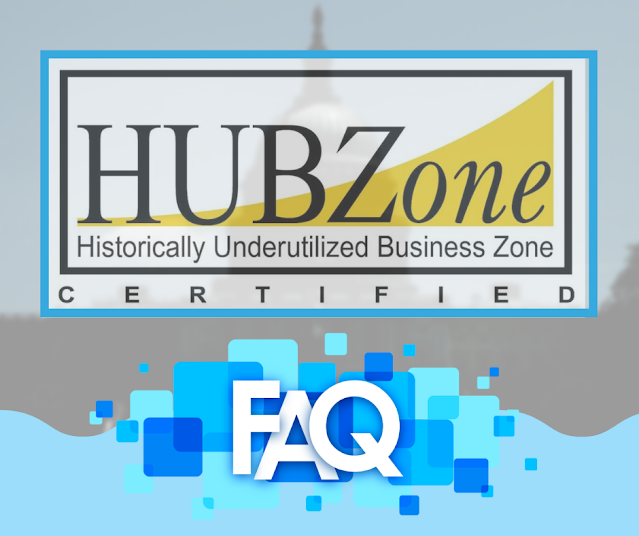Top FAQs on HUBZONE Grants and Certification
What are the regulations for using federal funds to sponsor religious activities?
Faith-based groups may not use direct government funding to support "inherently religious" activities, according to the US Supreme Court. It means that no part of direct Federal funding can be used to fund religious worship, instruction, or proselytization. Instead, organizations may only use government funds to support their non-religious humanitarian services. As a result, faith-based groups that receive direct government funding should take steps to segregate their intrinsically religious activities from the government-funded services the HUBZone grant provides, either in terms of time or place.
Such groups should also account for all government funds they receive. This does not rule out the possibility of religious activities in your organization. It simply means that you cannot sponsor them with public funds. Some faith-based groups established distinct charitable organizations (known as "501(c)(3) corporations") to keep government-funded programs separate from those that are intrinsically religious.If your group receives federal funds in the form of "vouchers" or other "indirect aid," this rule of thumb is different. An indirect aid program, in simple terms, provides dollars or certificates to people in need that can be used to get services from a variety of authorized organizations. A child-care certificate that a parent can use at any participating child-care center is one example of indirect aid. Another example of indirect aid is school vouchers. The Faith-Based and Community Initiative affects the great majority of programs that involve direct help to organizations (that is, money that goes directly to the groups), not vouchers or indirect aid.
What are some of the legal responsibilities that come with getting a federal HUBZone grant?
Requirements for Financial Reporting
Organizations that receive federal grants must file regular financial status reports to ensure that grant funds are handled properly. These forms should take no more than a few minutes to complete, but they are crucial. Standard Form 269 is the basic financial report form, which is a one-page document. Many organizations have customized this form to fit their needs.
Audit
Basic audit criteria apply to all agencies/organizations that receive federal monies, including community and faith-based organizations. These audits are only intended to look into the elements of an organization's operations that are financed by the federal government; they are not intended to find other issues. Audits are required to ensure that federal funds are spent correctly on valid expenses. As a result, it is critical for grant recipients to keep detailed records of all transactions involving federal monies.
Although the federal government can audit any program that receives public funds at any time, most organizations are not audited by the government. Organizations that spend less than $300,000 in Federal monies per year, for example, are usually just required to do a "self-audit." An audit by a private, independent outside legal or accounting firm is required for higher awards (above $300,000 per year).
What types of grants does the federal government offer?
There are two types of grants used by the federal government:
· Grants are made by a federal agency (sometimes known as "discretionary" grants), such as a homeless assistance grant given to a homeless shelter by the Department of Health and Human Services.
· Grants that place federal funds in the hands of states, cities, or counties for distribution to community groups, charities, and other social service providers, usually under their own rules and regulations (also known as "formula" or "block" grants).
You can either apply directly to the federal government or to an agency/organization that distributes monies received from the federal government. More money is accessible through state and local government initiatives than from the federal government.
What is the location of a list of HUBZone grant certification businesses?
The Dynamic Small Business Search has the official "list" of certified firms. The database search results are limited to 5,000 organizations, but there are generally more than this number of authorized HUBZone enterprises, so you'll need to narrow your search by region, industry, or other factors to get the list you need.
Two fields in each firm's DSBS profile are relevant to HUBZone accreditation. "HUBZone Certified?" returns a YES or NO answer indicating whether the company is currently certified. A yes answer to this question on a company's profile is formal proof of certification. Because a firm may have been decertified since the notice was sent, an approval or recertification letter is not valid evidence that a firm is currently certified. The "HUBZone Certification date" is another important feature. The date stated is only for the initial certification and does not include any dates for the SBA's internal recertification procedure.
My company is located in a HUBZone, but it has not applied for SBA HUBZone grant certification. Can I mention that our company is a HUBZone on our website?
Only enterprises that have been certified by the SBA as a HUBZone small business concern should present themselves as " HUBZone grant " concerns. Please be cautioned that any small business concern that the Administrator determines to have misrepresented its status as a "HUBZone small business concern" will be subject to the Small Business Act's penalties. 657a(c) of the United States Code (4). Furthermore, the SBA's regulations spell out the consequences of misrepresenting one's status as a HUBZone business. 13 C.F.R. Section 126.900.





Comments
Post a Comment